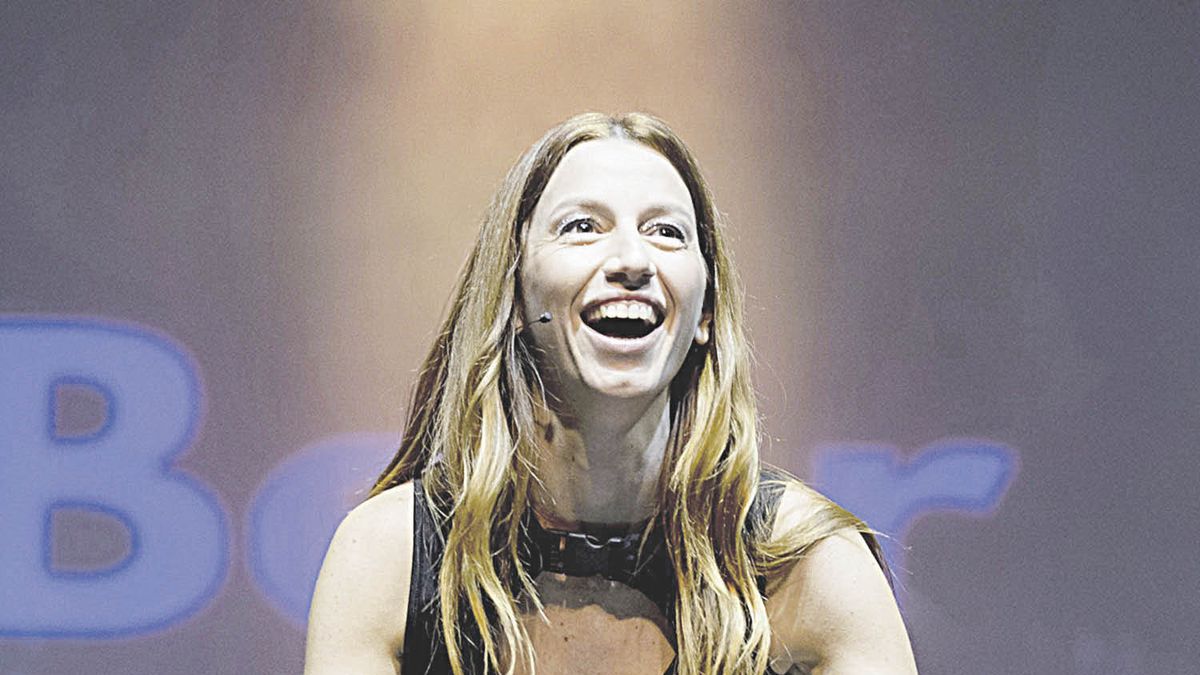Journalist: How did you go from informal chats in bars to theater?
cecilia ce: From the exchange with listeners and followers who asked me for certain information. I started in 2018 at bachelorette parties, the bars also came with exchange talks of two or three hours, and that’s where the theater came from. It doesn’t have a written script, I repeat more or less the same thing but I also change because I get bored. It arises from certain topics that I wanted to talk about, information that was also reflected in my books and the theatrical format made it fit for time reasons. It has humor to respond to the premise that it is entertainment, a weekend plan, interactive, but content and information remain the primary objectives.
Q.: What difference do you notice between the new generations and the previous ones in relation to sexology?
DC: The media agenda changed a lot and I am impressed by how sexuality has space, it is something that did not happen before. There are also more places to train in sexology, when before courses were not opened due to lack of enrollment. Although today there is more information that also generates doubts, there is a lack of confidence, critical capacity and analysis of one’s own sexuality. You think that everything has to happen to you and you have to understand your own. Sometimes I don’t want to repeat a topic but I keep getting the same queries.
Q.: What are those queries?
DC: Anxiety and its consequence on performance, loss of erection, difficulty reaching orgasm, doubts about contraception that, since I am not a doctor, I refer it to doctors, and a lot of insecurity, lack of desire, problems associated with pain. Consultation spaces are lacking, although they are more than in the past. You have to understand that not everything is for everyone, that sexuality is diverse, that each one must feel safe within their own sexual scheme, the challenge of communicating to get to know each other.
Q.: How do networks and technology influence the erotic and sexual?
DC: The telephone, the rhythm of life is inhuman, and that comes from hyperproductivity, you have to be available producing, sharing, you have to be active and that is attentive to the conditions of pause and connection with the body necessary for the sexual. Technology disconnects the body, we eat lunch in front of the screen and it is very difficult for us to go down and enter an erotic mode. Kids raised on screens are known to communicate less because they’re self-absorbed, and teens so exposed all the time fear failure or escrache and thus avoid dating. They do not hold meetings for fear of not doing it well, it is something that other generations did not experience.
Q.: How did the initiative to have a sign language interpreter on stage come about?
DC: It emerged from the networks, and that shows that they also have something good, which is feedback. A deaf girl asked me if she could come with her interpreter and that’s when the idea came to me.
Source: Ambito
David William is a talented author who has made a name for himself in the world of writing. He is a professional author who writes on a wide range of topics, from general interest to opinion news. David is currently working as a writer at 24 hours worlds where he brings his unique perspective and in-depth research to his articles, making them both informative and engaging.




